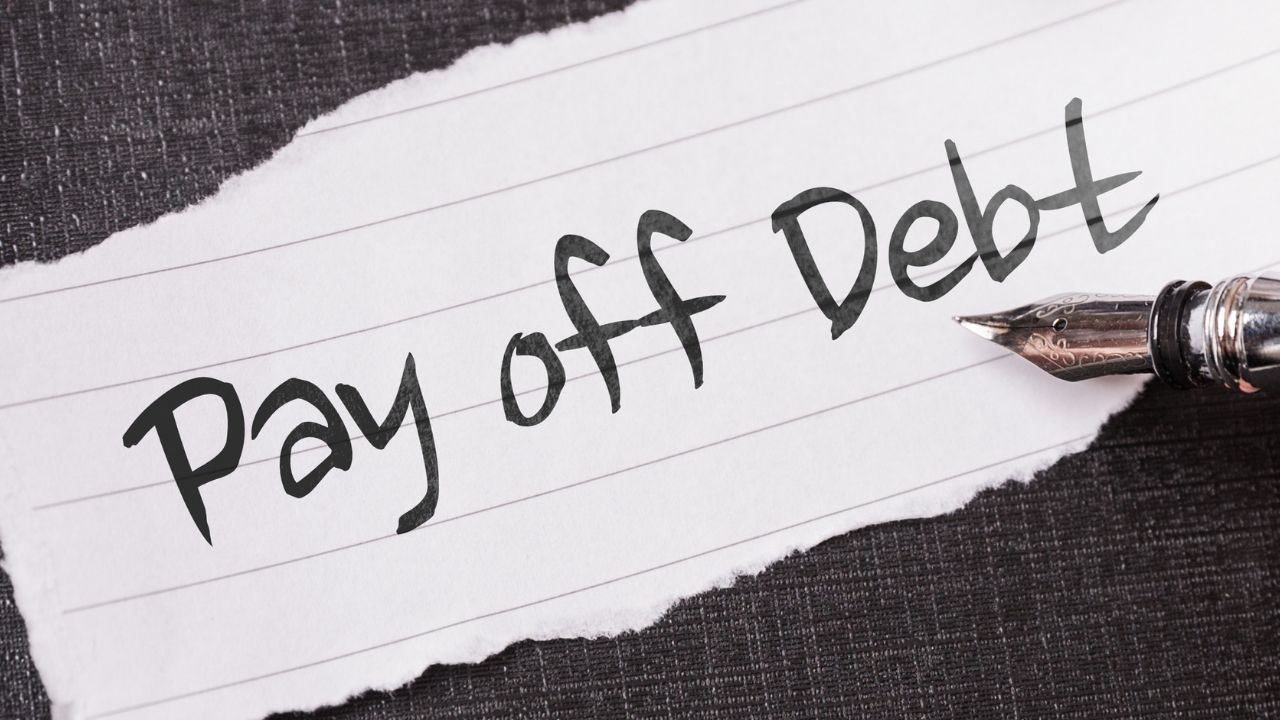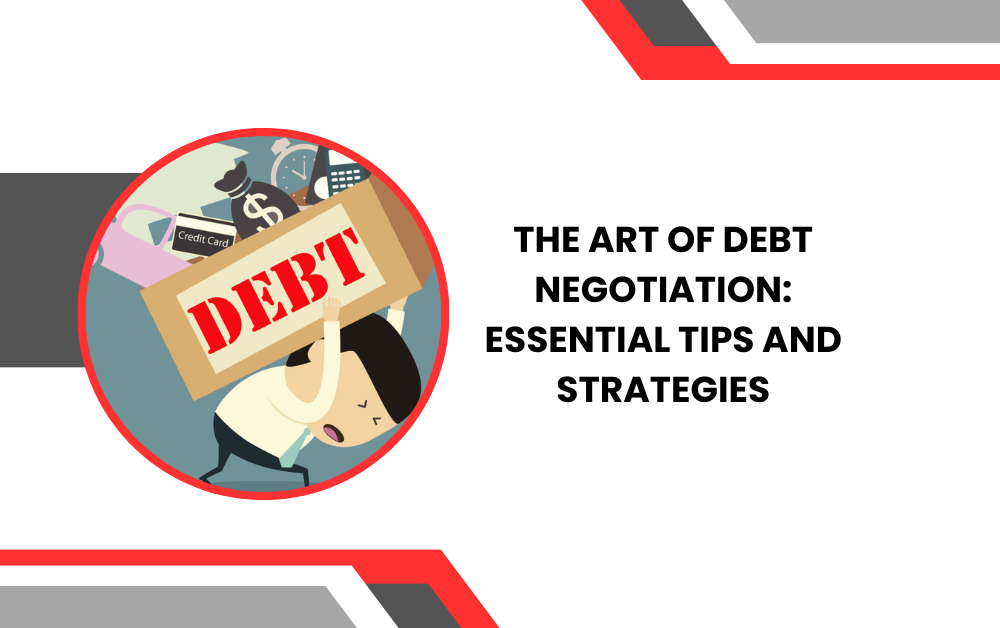Understanding Debt Negotiation
Debt negotiation involves discussions with creditors to reduce the total amount owed or to arrange more favorable repayment terms. This process requires clear communication, patience, and a strategic approach. By negotiating, you can potentially lower your interest rates, reduce the principal amount, or extend the repayment period. The ultimate goal is to create a manageable payment plan that aligns with your financial capabilities.
Debt can be a heavy burden, weighing down your financial stability and peace of mind. However, effective negotiation can significantly reduce this burden, making it more manageable. Understanding how to Negotiate Credit Card Debt is crucial for anyone looking to regain control of their financial situation. This comprehensive guide will explore the steps and strategies necessary to negotiate debt successfully, providing you with the tools to achieve financial relief.
Preparing for Debt Negotiation
Preparation is key to successful debt negotiation. Start by assessing your financial situation in detail. List all your debts, including the amounts owed, interest rates, and repayment terms. Understanding your overall financial picture will help you determine what you can realistically afford to pay. Additionally, create a budget to identify areas where you can cut expenses and allocate more funds toward debt repayment. This preparation will provide you with a clear understanding of your financial limits and enable you to negotiate effectively.
Researching Your Creditors
Before initiating negotiations, research your creditors thoroughly. Understand their policies, procedures, and any previous settlements they have made with other debtors. This information will give you an idea of what to expect during the negotiation process. Knowing your creditor’s practices can also help you formulate a compelling argument for reducing your debt. For instance, if you discover that a particular creditor has a history of settling debts for less than the full amount, you can use this knowledge to your advantage during negotiations.
Crafting a Persuasive Proposal
A well-crafted proposal is essential for successful debt negotiation. When presenting your case to creditors, be clear and concise about your financial situation. Explain why you are unable to meet the current repayment terms and propose a realistic alternative. Highlight any changes in your circumstances, such as job loss or medical expenses, that have affected your ability to pay. Be honest and transparent, as this will build trust with your creditors. Your proposal should include a specific repayment plan, outlining how much you can pay and over what period. A detailed and realistic proposal increases the likelihood of reaching a favorable agreement.
Initiating the Conversation
Once you have prepared your proposal, it’s time to initiate the conversation with your creditors. Contact them directly, preferably by phone, to discuss your situation. Be polite and professional, and clearly state your intention to negotiate the debt. Remember, creditors are more likely to respond positively if you approach them with respect and a genuine desire to resolve the debt. During the conversation, present your proposal and be prepared to negotiate. Listen to their counteroffers and be willing to compromise if necessary. The goal is to reach a mutually beneficial agreement that alleviates your financial burden while satisfying the creditor.
Leveraging Debt Settlement Companies
In some cases, working with a debt settlement company can be beneficial. These companies specialize in negotiating with creditors on behalf of debtors. They have experience and established relationships with creditors, which can increase the chances of a successful negotiation. However, it’s important to choose a reputable debt settlement company. Research potential companies thoroughly and check their credentials, reviews, and success rates. Be cautious of companies that charge high upfront fees or make unrealistic promises. A reliable debt settlement company can provide valuable assistance, but it’s essential to ensure they operate ethically and transparently.
Understanding the Impact on Your Credit Score
Debt negotiation can impact your credit score, so it’s important to understand the potential consequences. When you negotiate a debt, it may be reported as “settled” or “paid less than the full amount” on your credit report. This can negatively affect your credit score in the short term. However, successfully negotiating your debt and making consistent payments can improve your credit over time. It’s a trade-off that can ultimately lead to better financial health. Weigh the immediate impact on your credit score against the long-term benefits of reduced debt and improved financial stability.

Exploring Alternative Solutions
Debt negotiation is not the only solution for managing debt. Depending on your situation, other options may be more suitable. For instance, debt consolidation involves combining multiple debts into a single loan with a lower interest rate. This can simplify repayment and reduce the overall cost of debt. Another option is credit counseling, where a professional counselor helps you create a debt management plan. They can negotiate with creditors on your behalf and provide financial education to prevent future debt issues. Exploring these alternatives can help you find the most effective solution for your specific needs.
Staying Committed to the Agreement
Once you have successfully negotiated your debt, it’s crucial to stay committed to the agreement. Adhere to the repayment plan and make payments on time. Consistency is key to maintaining a positive relationship with your creditors and improving your financial situation. If you encounter difficulties meeting the agreed terms, communicate with your creditors promptly. They may be willing to adjust the terms to accommodate your circumstances. Staying committed to the agreement demonstrates your reliability and can lead to more favorable negotiations in the future if needed.
Building a Strong Financial Future
Negotiating debt is a significant step towards financial recovery, but it’s also important to focus on building a strong financial future. Develop good financial habits, such as budgeting, saving, and managing expenses. Educate yourself about personal finance to make informed decisions and avoid future debt issues. Consider creating an emergency fund to cover unexpected expenses and prevent debt accumulation. Building a strong financial foundation requires discipline and planning, but it will pay off in the long run by providing stability and peace of mind.
Seeking Professional Advice
If you feel overwhelmed or uncertain about negotiating your debt, seek professional advice. Financial advisors, credit counselors, and legal professionals can provide valuable guidance and support. They can help you understand your options, create a negotiation strategy, and navigate the complexities of the process. Professional advice can be especially beneficial if you have significant debt or face challenging financial circumstances. Don’t hesitate to reach out for help when needed, as professional support can make a significant difference in your debt negotiation journey.
Conclusion
Negotiating debt is a powerful tool for managing financial burdens and achieving relief. By preparing thoroughly, researching your creditors, crafting a persuasive proposal, and staying committed to the agreement, you can successfully reduce your debt and regain control of your finances. Explore alternative solutions, understand the impact on your credit score, and seek professional advice if needed. Building a strong financial future requires discipline, planning, and good habits. With the right approach and determination, you can overcome debt challenges and achieve financial stability. Take the first step towards financial freedom today by mastering the art of debt negotiation.
Note :- To Read More Articles Visit on- netblogz
